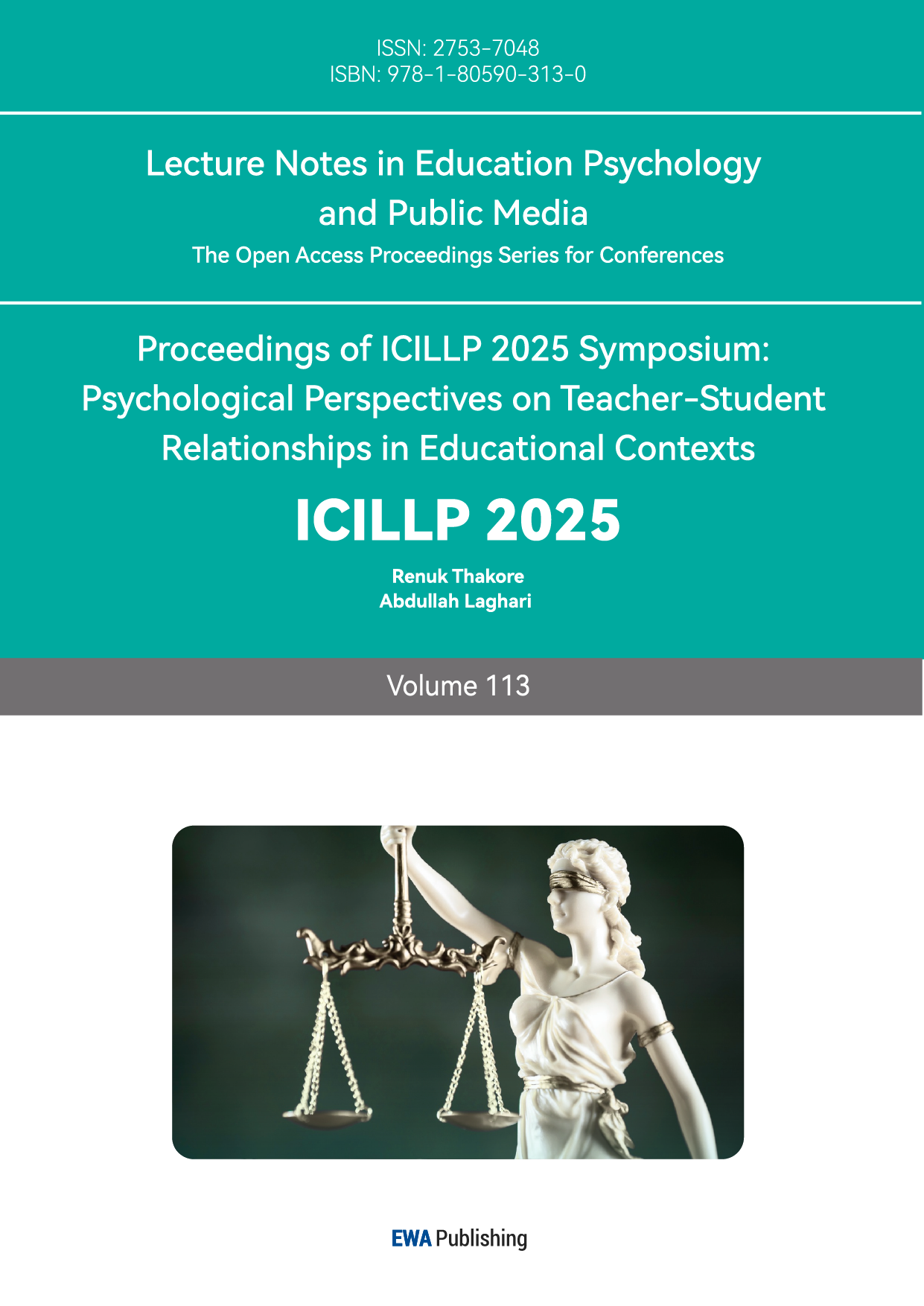References
[1]. Grand View Research. (2021). AI In Education Market Size, Share & Trends Analysis Report. Grand View Research. Retrieved from https: //www.grandviewre search.com/industry-analysis/artificial-intelligence-ai-education-market-report..
[2]. Cope, B., Kalantzis, M., & Searsmith, D. (2021). Artificial Intelligence for Education: Knowledge and Its Assessment in AI-Enabled Learning Ecologies. Educational Philosophy and Theory, 53(12), 1229–1245.
[3]. Walter, Y. (2024). Embracing the Future of Artificial Intelligence in the Classroom: The Relevance of AI Literacy, Prompt Engineering, and Critical Thinking in Modern Education. International Journal of Education Technology High Education, 21, 15.
[4]. Gillespie, N., Lockey, S., Curtis, C., Pool, J., & Akbari, A. (2023). Trust in Artificial Intelligence: A Global Study. The University of Queensland and KPMG Australia.
[5]. Elhussein, G., Hasselaar, E., & Lutsyshyn, O. (2024). Shaping the Future of Learning: The Role of AI in Education 4.0. World Economic Forum.
[6]. iFlyTek. (2024). From Holding the "Red Pen" to Holding the "Mouse": The Technological Revolution Behind the College Entrance Examination Marking.
[7]. Leh, J. (2022). AI in LMS: 10 Must-See Innovations for Learning Professionals. Talented Learning.
[8]. Di Battista, A., Hasselaar, E., Silva, A., & O'Reilly, K. (2023, September). Jobs of Tomorrow: Large Language Models and Jobs. In World Economic Forum.
[9]. Wang, Q. (2019). Research on the Role of Teachers in Traditional Teaching Mode and "MOOC Plus Flipped Classroom" Teaching Mode. Proceedings of the 3rd International Conference on Culture, Education and Economic Development of Modern Society (ICCESE 2019), 224–228.
[10]. Major, L., Francis, G. A., & Tsapali, M. (2021). The Effectiveness of Technology-Supported Personalised Learning in Low- and Middle-Income Countries: A Meta-Analysis. British Journal of Educational Technology, 52, 1935–1964.
[11]. Zheng, H., Li, K., & Zhu, T. (2019). Research on Curriculum Teaching Reform in Colleges and Universities under the Background of "Internet+". Proceedings of the 4th International Conference on Humanities Science, Management and Education Technology (HSMET 2019), 136-140.
[12]. Pitts, G., Rani, N., Mildort, W., & Cook, E. M. (2025). Students' Reliance on AI in Higher Education: Identifying Contributing Factors. arXiv preprint arXiv: 2506.13845.
[13]. Mehrabi, N., Morstatter, F., Saxena, N., Lerman, K., & Galstyan, A. (2021). A Survey on Bias and Fairness in Machine Learning. ACM Computing Surveys (CSUR), 54(6), 1-35.



